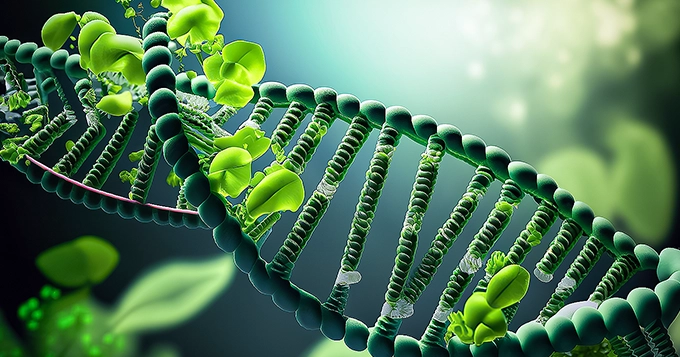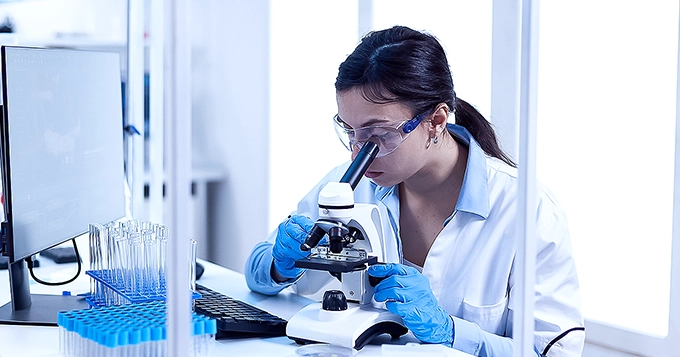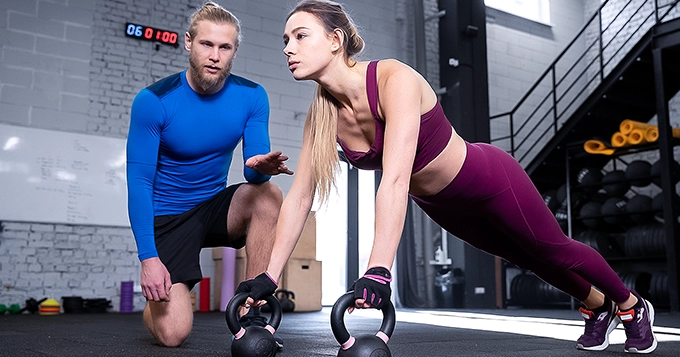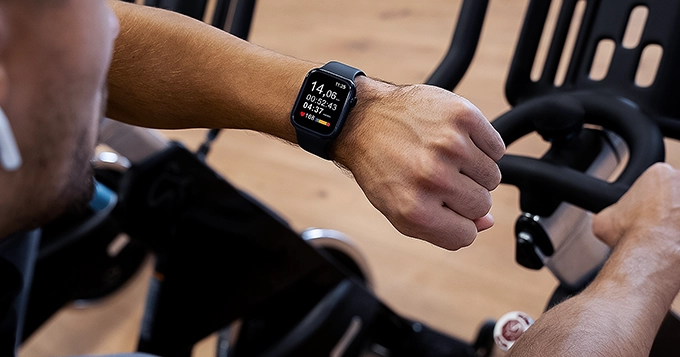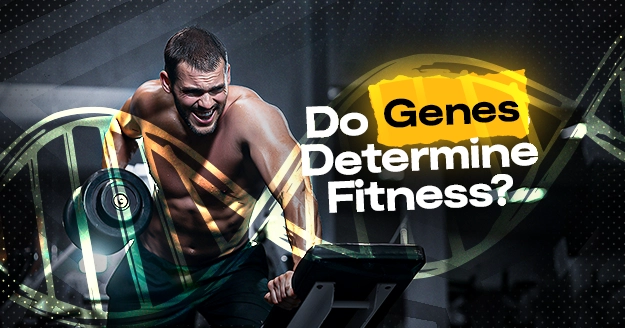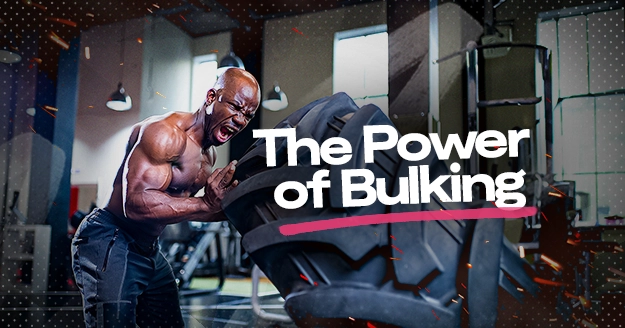Do your genes decide if you’re naturally fit?
Yes, there have been several studies that have identified genes that may influence an individual’s fitness level, body size, muscle strength, and overall health.
How Do You Know If Your Genes Make It Hard To Be Fit?
To find out how your genes affect your exercise abilities, you can take a genetic test. The genetic test results will tell you how your body responds to different types of workouts and physical training.
Certain Genes That Affect Someone’s Fitness
1. ACTN3: This gene encodes a protein called alpha-actinin-3, which is involved in muscle contraction. This variation in genes has been linked to differences in muscle strength and power, as well as injury risk in athletes. Individuals with a certain variant (R577X) may be more susceptible to injuries such as hamstring strains and Achilles tendon ruptures.
2. COL5A1: This gene encodes a protein called type V collagen, which is involved in the structure of connective tissue. In female athletes, it has been linked to a higher risk of anterior cruciate ligament (ACL) injury.
3. AGTR1: This gene encodes a protein called angiotensin II receptor type 1, which is involved in the regulation of blood pressure and fluid balance. Variations in this gene are linked to differences in endurance performance and recovery from high-intensity exercise.
4. PPARGC1A: This gene encodes a protein called peroxisome proliferator-activated receptor gamma coactivator 1 alpha (PGC-1α), which is involved in mitochondrial biogenesis and energy metabolism. This gene variation is associated with differences in endurance performance and response to endurance training.
5. TNFSF15: This gene encodes a protein called tumor necrosis factor (ligand) superfamily member 15 (TNF-like weak inducer of apoptosis [TWEAK]), which is involved in inflammation and tissue repair. Variations have also been linked to differences in injury risk and recovery from injury.
These are just a few examples, and there are many other genes that may play a role in exercise capacity, recovery, and injury risk.
What To Do
Fitness isn’t solely about diet and exercise. A one-size-fits-all approach doesn’t work because each person requires a customized plan based on their body type and genetic markers.
-
Hire a professional trainer
A skilled trainer can design a customized fitness program that considers your specific needs, challenges, and goals.
Here are a few reasons why hiring a professional trainer can be helpful, even if you have genetic factors that may make it harder to be fit:
- Tailored Exercise Plans: A qualified trainer can design a customized workout program that takes into account your particular genetic composition, physical condition, and any potential limits. This ensures that your workouts are effective and safe.
- Expert Guidance: Trainers are educated in a variety of training methods, dietary plans, and recovery techniques. They also offer advice on how to maximize your fitness routine and modify it based on your genetic makeup.
- Motivation and Accountability: There is a sense of accountability and motivation when working with a trainer. You’ll be more likely to stick with your goals if you know you have regular sessions and that someone is helping you commit to your goals.
- Adaptability: Your program can be modified by trainers as needed. A trainer can adjust your program to optimize results if you have particular genetic factors that impact how you respond to exercise or how much muscle you can gain.
-
Track your progress
Tracking your progress can help you reach your fitness goals even if your genes make it hard. By doing this, you can see what fitness routine works and what doesn’t. Modify your routine based on your data.
Most people seem to find that switching up their regimen every 4-6 weeks is a good idea. However, as beginners usually require more time to improve their form on primary exercises, it is strongly recommended that beginners stick to the same training routine for six to twelve weeks.
-
Develop healthy habits
If you have genetic factors that make it challenging to maintain optimal fitness, developing healthy habits becomes even more crucial. Daily habits that affect fitness levels include nutrition, sleep, and stress management.
- Balanced Diet: Eat a healthy, well-balanced diet composed of whole grains, healthy fats, veggies, fruits, and lean meats. Be mindful of the portions you eat.
- Mindful Eating: Heed your body’s hunger and fullness cues. Avoid emotional eating and be mindful of the nutritional content of your meals.
- Hydration: Drink an adequate amount of water throughout the day to support overall health and wellness.
- Adequate Sleep: Prioritize quality sleep. 7-9 hours of sleep every night supports recovery and overall well-being.
- Stress Management: Practice deep breathing, meditation, or yoga. Chronic stress can impact your fitness goals, so managing stress is crucial.
- Limit Sedentary Behavior: Minimize prolonged periods of sitting. Take breaks to stand, stretch, and move throughout the day.
- Regular Health Check-ups: Regular check-ups with your doctor help you monitor your overall health and address any concerns.
-
Exercise regularly
Do not underestimate the determination fitness relationship. Your will, paired with hard work, can help you.
If your genes make it hard to get in shape, it just means that you need to work harder, not that achieving your fitness goals is entirely impossible. Regular physical activity and exercise have a significant effect on fitness. With regular training, even those with specific genetic predispositions can significantly improve their fitness levels.
-
Educate yourself
Understanding your genetic fitness can provide insights into how your genes influence factors such as metabolism, muscle composition, and overall health.
Learn about your genetic predispositions, but don’t let them define your capabilities. Knowledge empowers you to make informed choices.
